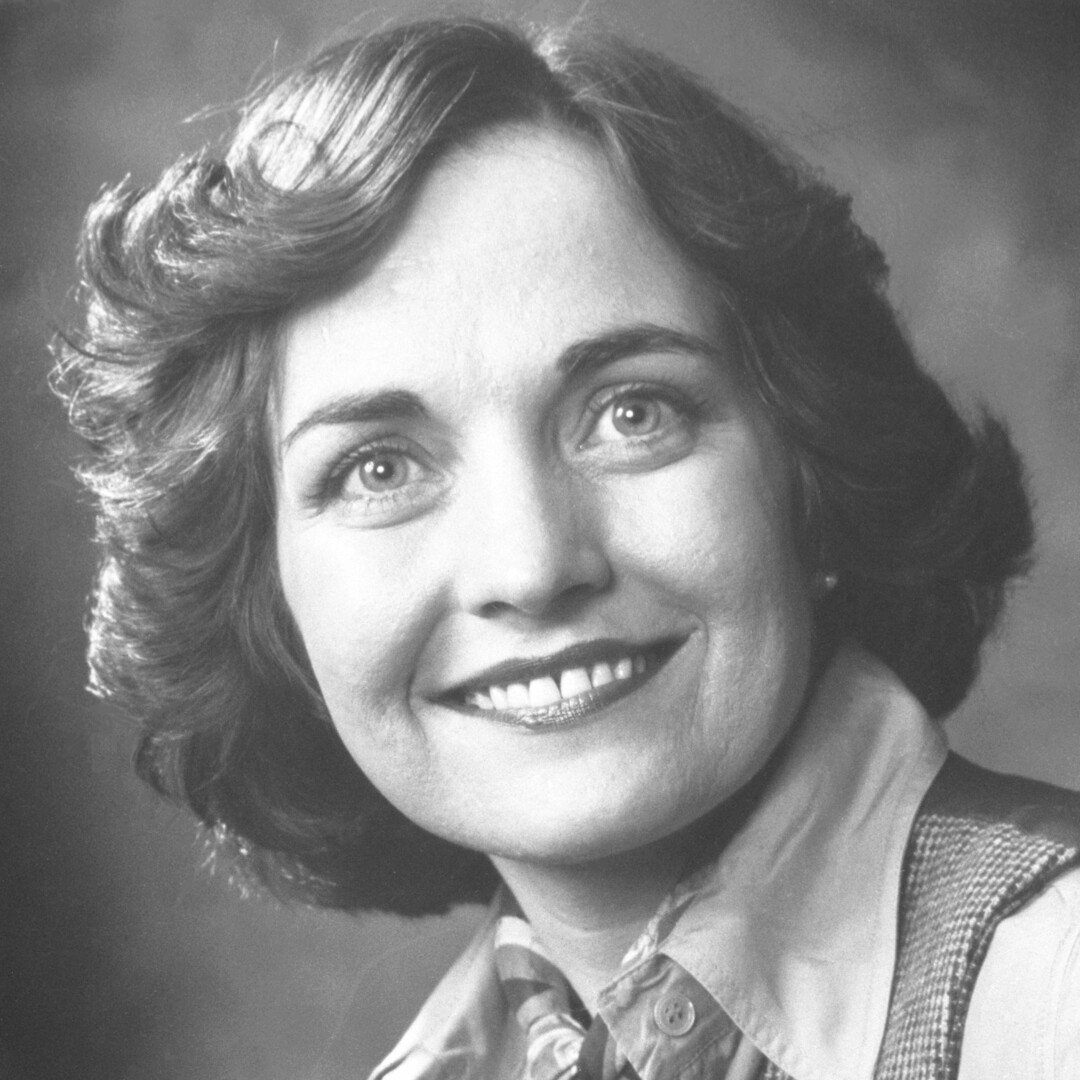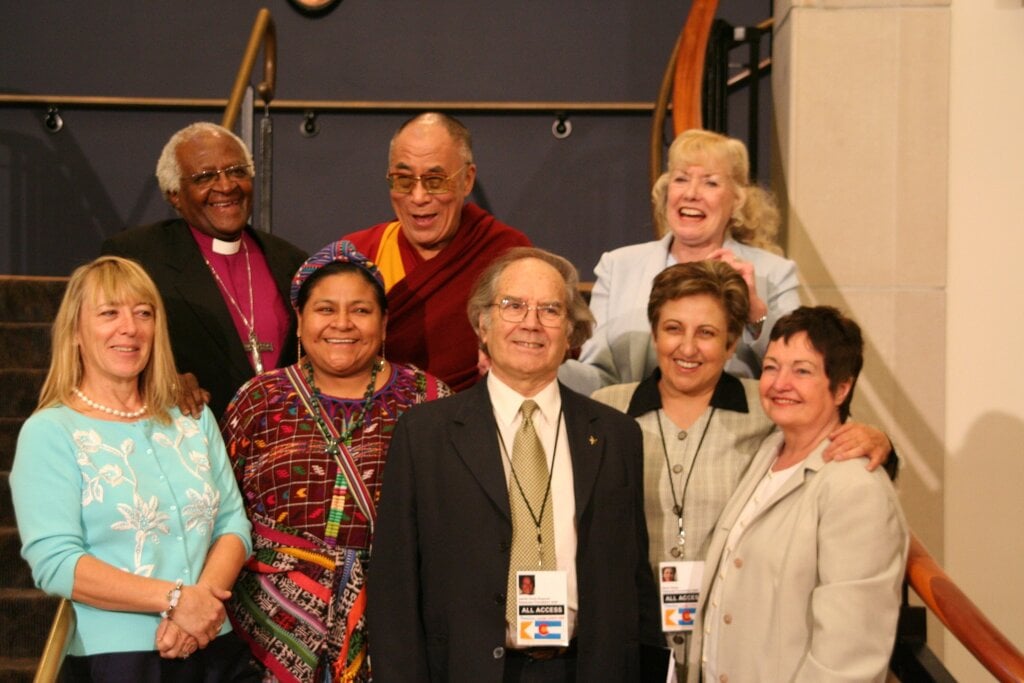Mairead Corrigan
Speed read
Mairead Corrigan was awarded the Nobel Peace Prize, jointly with Betty Williams, for campaigning against the conflict between Catholics and Protestants in Northern Ireland.

Full name: Mairead Corrigan
Born: 27 January 1944, Belfast, Northern Ireland
Date awarded: 10 October 1977
Catholic peace activist
In 1976 Mairead Corrigan’s sister lost three of her children in the wake of a clash between British soldiers and a member of the IRA in Belfast. Soon after, Corrigan made contact with Betty Williams, a witness to the tragedy. Together they founded a peace organisation to put an end to the bitter conflict between Catholics and Protestants in Northern Ireland. Corrigan grew up in poverty in Belfast. An office worker, she also devoted many hours to a Catholic welfare organisation from which she derived inspiration for her peace efforts. In 1976 and 1977 she organised thousands of people to take part in protest marches and trust-building activities at the grassroots level. Mairead Corrigan did not give up hope even when support for the Community of Peace People waned towards the end of the 1970s. She continued her local peace efforts with admirable determination.
"They took the first courageous step along the road to peace. They did so in the name of humanity and love of their neighbour: someone had to start forgiving. Love of one's neighbour is one of the foundation stones of the humanism on which our western civilisation is built."
Egil Aarvik, Presentation Speech, 10 December 1977.
| IRA Irish Republican Army. Founded in 1919. Played a decisive role in the war of liberation against Great Britain. Its goal is to unify Ireland. Starting in 1970, the IRA committed acts of terrorism and assassination in Northern Ireland and England. In 2000 the IRA agreed to abandon its armed struggle. |
"Just as quickly the media interest evaporated, the peace demonstrators went back home – and the war raged on. With quiet determination, Máiread continued her work for peace. While all about seemed possessed with violence, she spoke the unpopular word – nonviolence."
John Dear, Director of Fellowship for Reconciliation, 1999.
Dwindling support for the Community of Peace People
At the end of the 1970s, the ranks of the Community of Peace People diminished in number. The laureates were criticised for using their prize money to cover personal expenses, although this in no way violates the terms of Nobel’s will. The IRA branded them as traitors, while extremist Protestants called them “manipulated Catholic puppets.” Both Williams and Corrigan received death threats and were the targets of malicious rumours. Financial and tactical issues divided the leadership of the Community of Peace People, and animosity developed between the two women. In 1980 Williams withdrew from the organisation and emigrated to the USA.
"It is not violence that people want. Only one percent of the people of this province want this slaughter."
Mairead Corrigan in a television interview, 11 August 1977.
Community of Peace People continues its work
In 1981 Mairead Corrigan married her late sister’s widower and took the name Corrigan Maguire. She carried on local peace-related activities for the Peace People by organising holiday camps and clubs for young people from different religious backgrounds. She also supported integrated schools in an effort to break down barriers between Catholic and Protestant children. At the international level, Corrigan Maguire gave priority to the educational programme known as PeaceJam, in which she cooperated closely with 11 other Nobel Peace Prize laureates.

The Nobel Women’s Initiative
In 2009 Mairead joined peace laureates Betty Williams, Shirin Ebadi, Wangari Maathai, Jody Williams and Rigoberta Menchú Tum in founding the Nobel Women’s Initiative. Its aim is to reinforce women’s rights by “promoting, spotlighting and amplifying the work of women’s rights activists, researchers, and organisations worldwide that address the root causes of violence, in a way that strengthens and expands the global movement to advance nonviolence, peace, justice and equality.”

Learn more
Co-founder of Community of Peace People with Mr. Ciaran McKeown and Mrs Betty Williams – Founded 14/8/76 ...
Disclaimer: Every effort has been made by the publisher to credit organisations and individuals with regard to the supply of photographs. Please notify the publishers regarding corrections.
Nobel Prizes and laureates
Six prizes were awarded for achievements that have conferred the greatest benefit to humankind. The 12 laureates' work and discoveries range from proteins' structures and machine learning to fighting for a world free of nuclear weapons.
See them all presented here.
